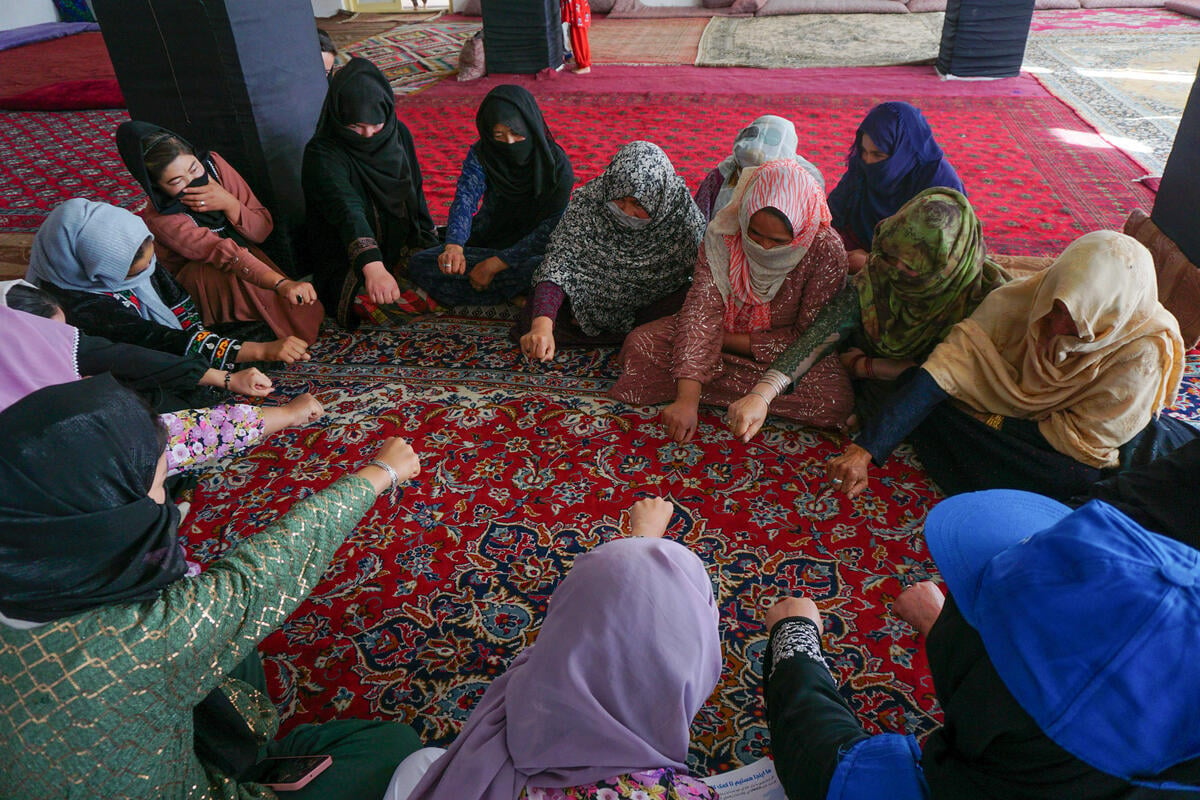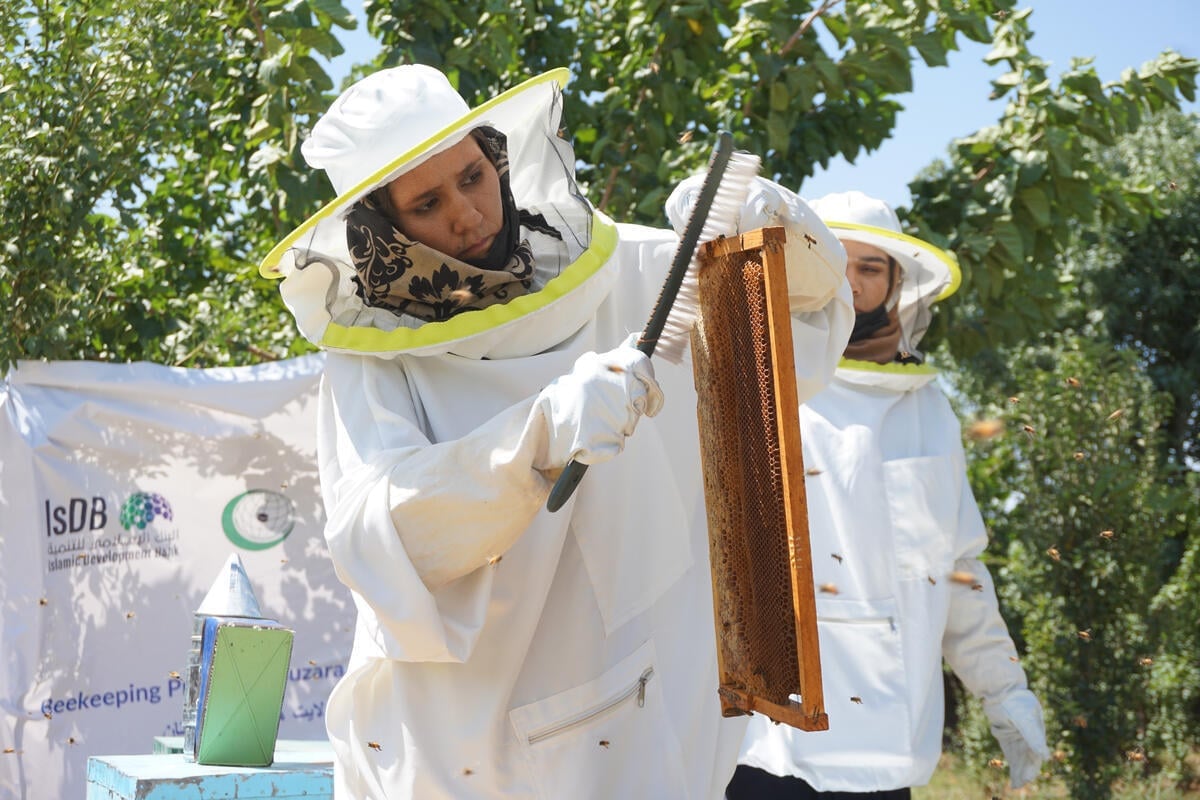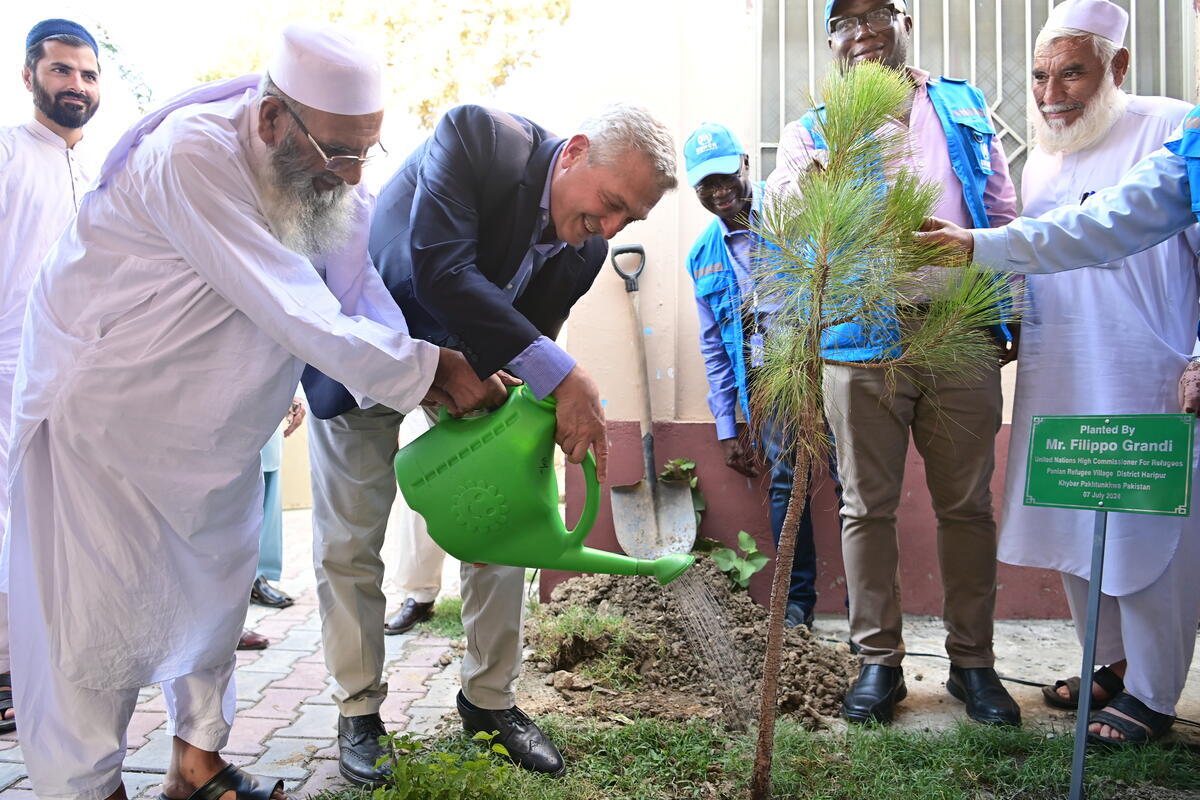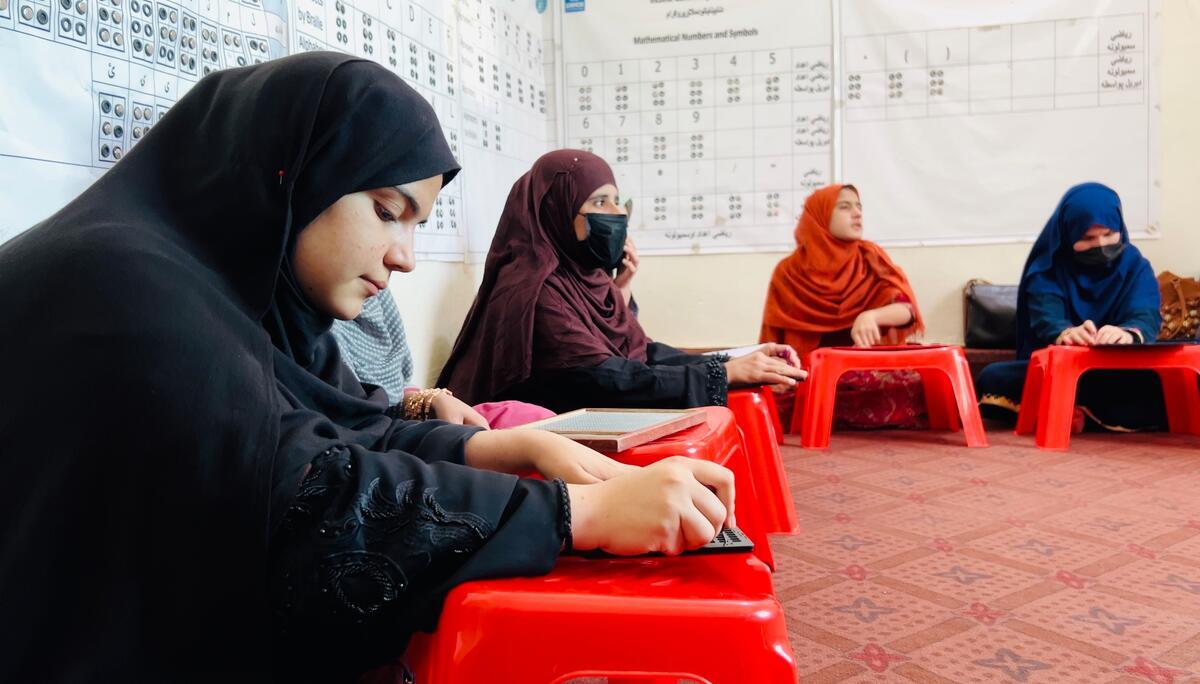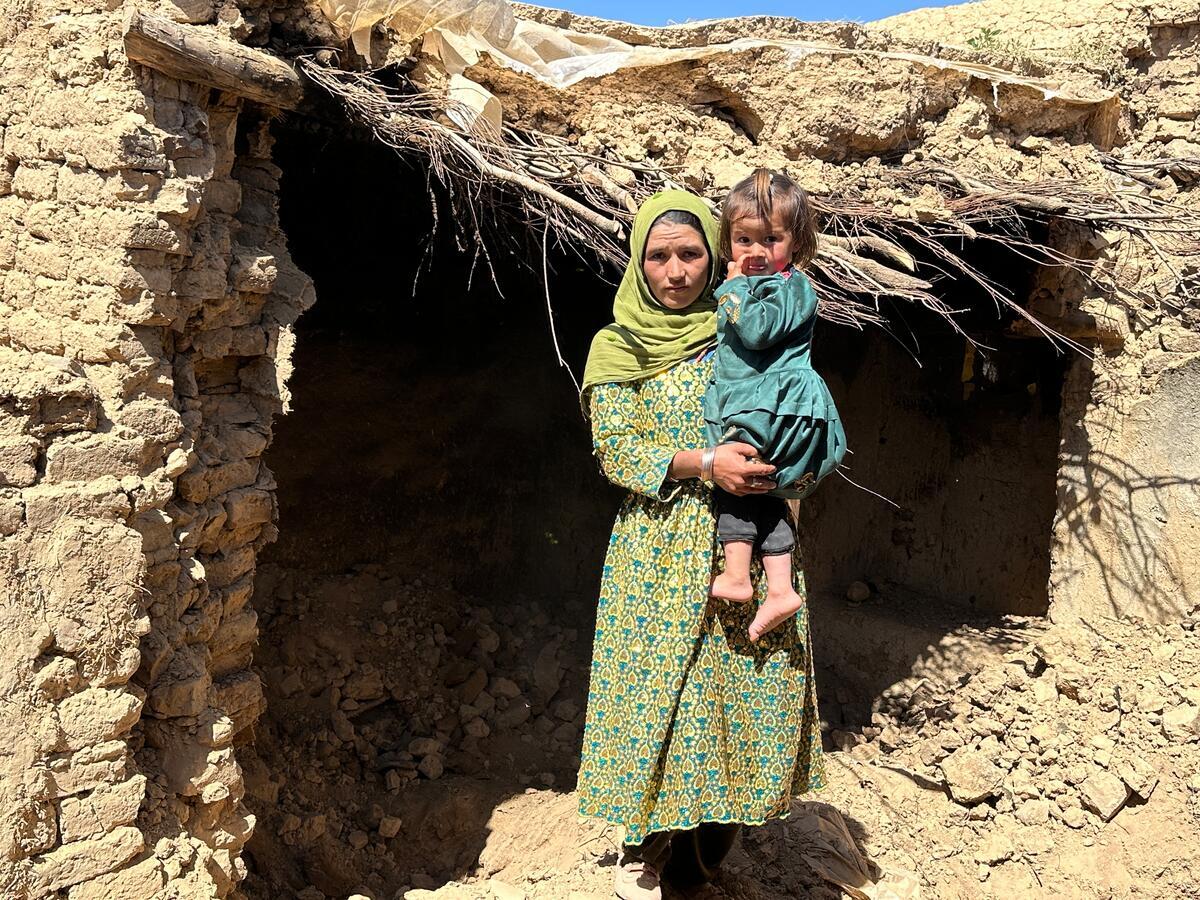Pakistan hosts first formal meeting on Afghan returns; non-Afghan refugees granted more rights
Pakistan hosts first formal meeting on Afghan returns; non-Afghan refugees granted more rights

ISLAMABAD, Pakistan, May 14 (UNHCR) - In an attempt to resolve the 23-year-old Afghan refugee problem, Pakistan today hosted the first-ever meeting of a commission with the government of Afghanistan and the UN refugee agency to discuss the ongoing return and reintegration of Afghan refugees.
The Tripartite Commission, held on Wednesday in the Pakistani capital of Islamabad, marked the start of a formal process for resolving one of the world's longest-running humanitarian concerns. Pakistan, Afghanistan and UNHCR each sent two representatives to assess the status of Afghan refugees in Pakistan, their reintegration into Afghan society and the performance of the voluntary repatriation programme run by UNHCR.
Under an agreement reached on March 17, many of the estimated 2 million Afghan refugees in Pakistan are expected to voluntarily return home in the next three years. Those who remain after that time will be screened to determine if they still need the protection of refugee status.
More than 60,000 Afghan refugees have returned from Pakistan with UNHCR assistance since the agency officially launched its 2003 return operation in March. And last year, despite the absence of a formal agreement, UNHCR ran a repatriation programme that helped nearly 1.6 million Afghans go home from Pakistan.
However, returns should be weighed against other concerns such as insecurity in parts of Afghanistan, and the country's absorption capacity.
"It's best for Afghanistan not to have a huge wave of people going back at the same time," cautioned Filippo Grandi, UNHCR's chief of mission in Afghanistan, at a press conference after Wednesday's meeting. "From our perspective, this is the uppermost concern."
To cope with Afghan refugees who do decide to go back and to thwart past returnees seeking additional repatriation assistance, UNHCR and the Pakistani government on Monday opened a new iris test centre in Peshawar's Hayatabad area. Located in a more accessible site than the previous one at Takhtabaig, the new centre uses advanced computer technology to detect anyone trying to make repeated claims for UNHCR's returnee assistance package.
Meanwhile, in a separate development, the UN refugee agency on Tuesday signed an agreement with the Pakistani government to grant formal rights to non-Afghan refugees. Some 1,000 refugees, mainly from Somalia, Iran and Iraq, will be registered with Pakistan's National Aliens Registration Authority (NARA), after which they will receive formal identification cards and work permits.
"Refugee rights like freedom of movement, protection against arbitrary arrest and the right to seek gainful employment will be guaranteed," said Hasim Utkan, UNHCR's Representative in Pakistan, who signed the agreement with Muhammud Saleem Khan, director-general of NARA.
The refugees' identity cards will protect them against punishment and deportation during the period they are registered. The granting of work permits will also enable them to be self-sufficient and less dependent on external financial assistance.
"This card provides them with a sort of security," said NARA's Khan.
Although Pakistan is not a party to the 1951 or 1967 international agreements on refugees, it has accepted the UN refugee agency's decisions on refugees and allows them to remain until a long-term solution to their problems is found. However, the lack of work permits meant UNHCR had to support non-Afghan refugees - who often lacked the coping mechanisms of the Afghans - sometimes for years.


